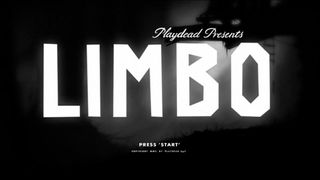

She was born on a Saturday but died the next day. But in 1954 I had a sister born named Marian (as it was Marian year in Ireland). Speaking about their own experience of Limbo, a respondent in the study said: "I was the eldest of ten children. 'Because people didn't buy it anymore'.They believe in a more merciful God and that children will go to Heaven directly.' cruel place and don't think that children go there. They were no longer afraid of the "fire and brimstone" that our previous generations were afraid to question.' 'Young people became more educated and began to question stuff that did not make sense to them.'More people less accepting of Church/Catholic myths'.However, 25 per cent of respondents believed that the teaching authority of the Catholic Church – in other words the Pope and the hierarchy – was the source of change.Ĭomments from respondents in the survey include: In the study, 75 per cent of respondents felt the decline of belief in Limbo was due to the changing beliefs and values of the Catholic laity in Ireland, rather than change emanating from the centre of the Catholic Church in Rome. Heaven was closed to the unbaptised, as indeed was consecrated Church ground," Professor Kennedy said. I have little doubt that mothers who had miscarriages or still-births suffered mental anguish as a result of the death of an unbaptised foetus or still-birth.

Otherwise, the infant risked losing eternal happiness and going into a void called Limbo. "A fear of Limbo drove parents to have their new-born child baptised as soon as was practicable. "Catholics in Ireland, from the 1960s onwards, turned their backs on a religious belief they found not credible or even cruel and the institutional church itself placed less and less emphasis on the 'doctrine' of Limbo. In Ireland, understandings of Limbo, along with Heaven, Hell and Purgatory, were handed down by parents, schoolteachers, priests and nuns, drawing on the teachings of the Catholic Church. But Limbo appears to have disappeared off the spiritual map." For Catholics, though not Irish Protestants, this formed part of a spiritual cosmos which viewed Heaven and Hell as opposite poles, with Purgatory and Limbo occupying rather vaguely defined intermediate positions. "Children growing up in the Ireland of the 1950s will have a clear remembrance of a metaphysical space or place known as Limbo. It seems the concept was developed over time by Christians to handle two problems: one was the fate of those who led just lives and who died before Christ came on earth to redeem humankind the other was the fate of unbaptised babies in the event of death. Professor Kennedy explained: "The term Limbo does not appear in the Bible or the New Testament. The women varied in ages, with birth dates ranging from the 1930s - 1960s and represented all four provinces of the island of Ireland. Some 26 women in total, including 23 from the Irish Countrywomen's Association, took part in the survey which was carried out in 2017. The study was led by Professor Liam Kennedy, Professor Emeritus of History from the Institute of Irish Studies at Queen's University, who conducted a survey questionnaire in association with the Irish Countrywomen's Association. Limbo, in Catholic theology, was believed to be the border place between heaven and hell where those souls who died without being baptised, though not condemned to punishment, were deprived of eternal happiness with God in heaven.


 0 kommentar(er)
0 kommentar(er)
